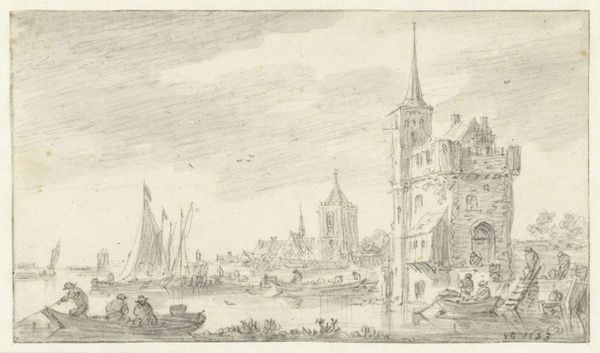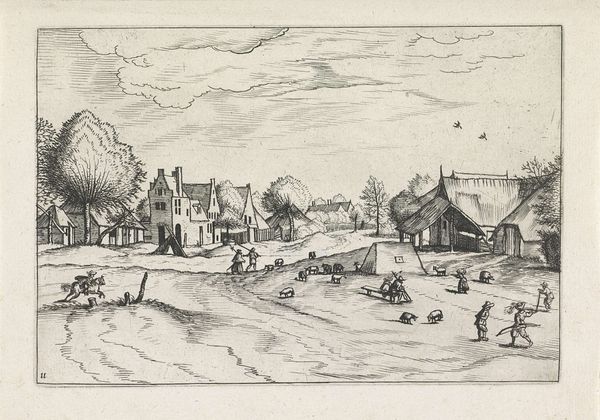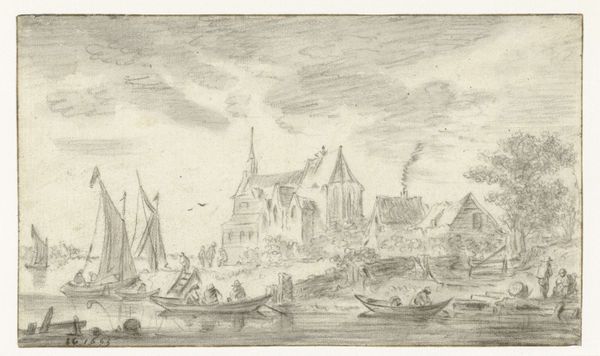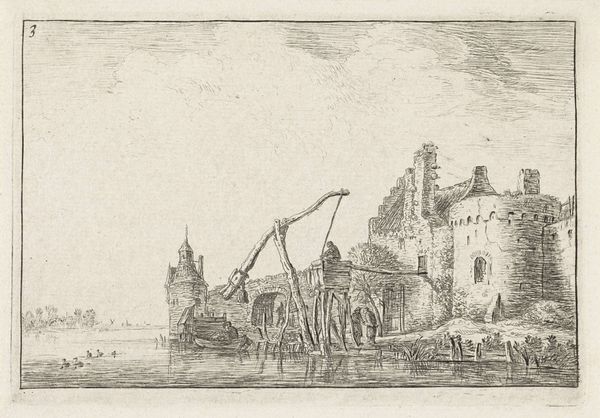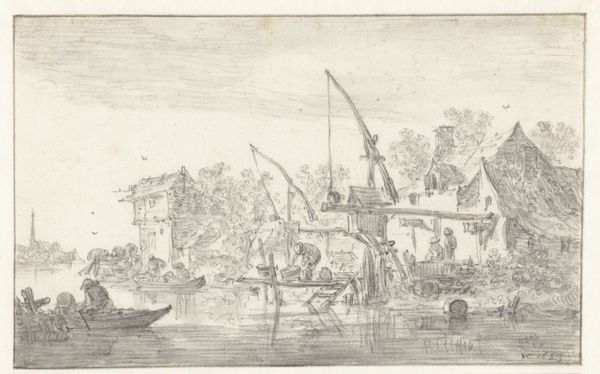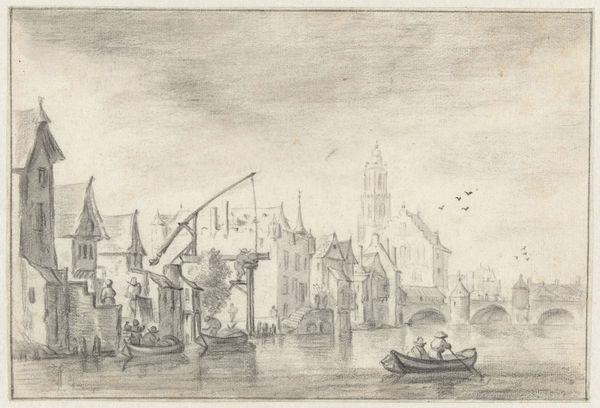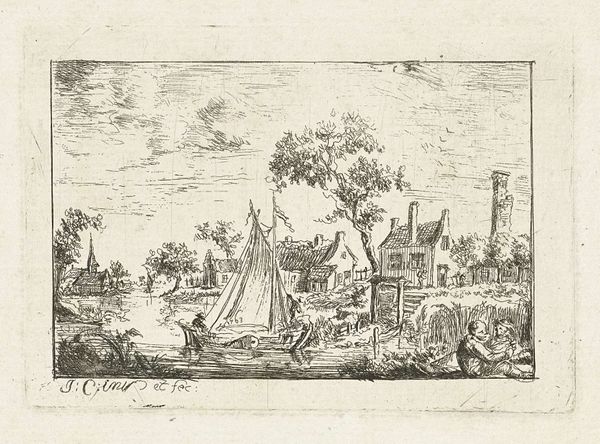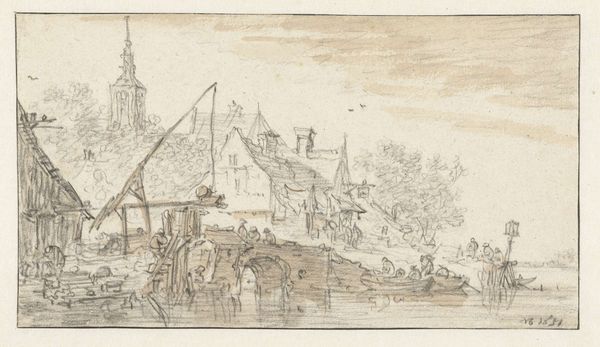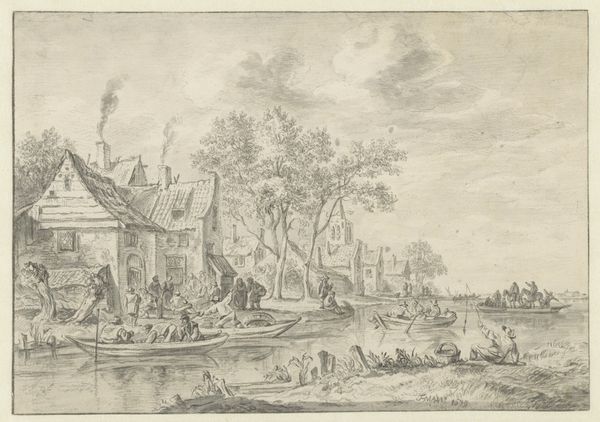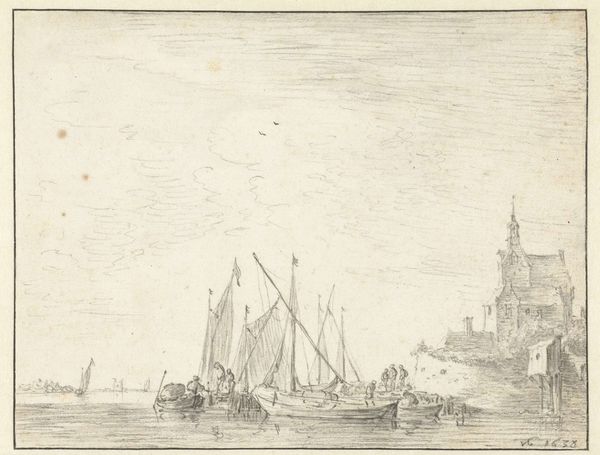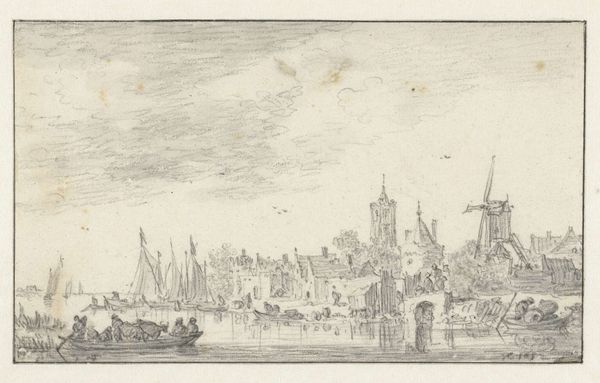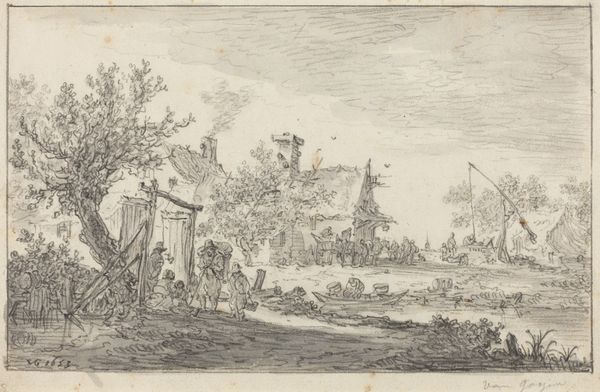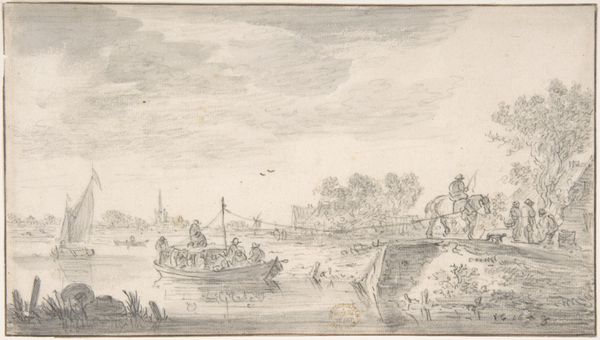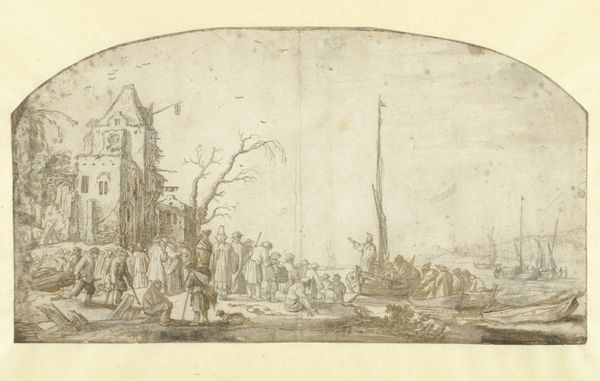
drawing, pencil
#
drawing
#
dutch-golden-age
#
pen sketch
#
landscape
#
form
#
pencil
#
line
#
genre-painting
#
realism
Dimensions: height 122 mm, width 199 mm
Copyright: Rijks Museum: Open Domain
Editor: Here we have "Farmhouse on the Bank of a River", a pen and pencil drawing by Jan van Goyen from 1652. It's interesting to see so much activity rendered with such a limited tonal range. It almost feels like the forms are emerging from the blankness of the paper. How would you interpret this work from a more formalist perspective? Curator: Observe how Van Goyen manipulates line weight and density. Note the detailed layering of short, hatch-like marks to evoke textures, masses, and shadows. The linear framework and understated variations in light create a captivating balance of geometric abstraction and naturalism. Editor: I see what you mean, the geometric structure in the roof of the farmhouse is subtle, but it's there. Curator: Precisely. The overall composition leads the eye, doesn't it? Notice the way the horizontal emphasis of the land and water interact with the farmhouse which establishes a more vertical thrust. And consider how that contrast underscores the tension between human cultivation and natural form. Do you see any potential relationship here? Editor: The balance feels intentional and controlled. Curator: Indeed. Further, this carefully orchestrated play between flatness and depth contributes to the overall elegance and balance. The horizon line in the background flattens as our focus remains on the angular intersection on the opposite end, drawing focus away from reality and toward abstraction. Editor: I see it. I was focused on the narrative details before, but the underlying structure and compositional tension give it so much more depth. Curator: Quite right, understanding form is vital in seeing and interpreting such art.
Comments
No comments
Be the first to comment and join the conversation on the ultimate creative platform.
